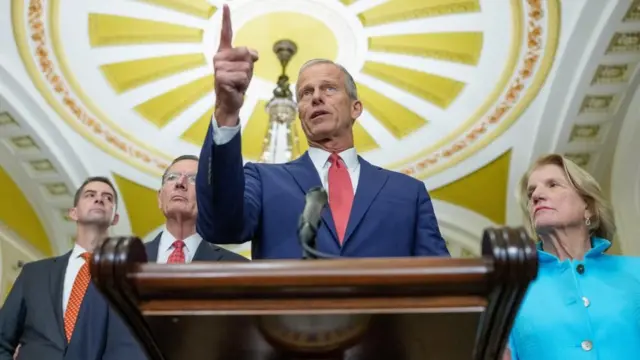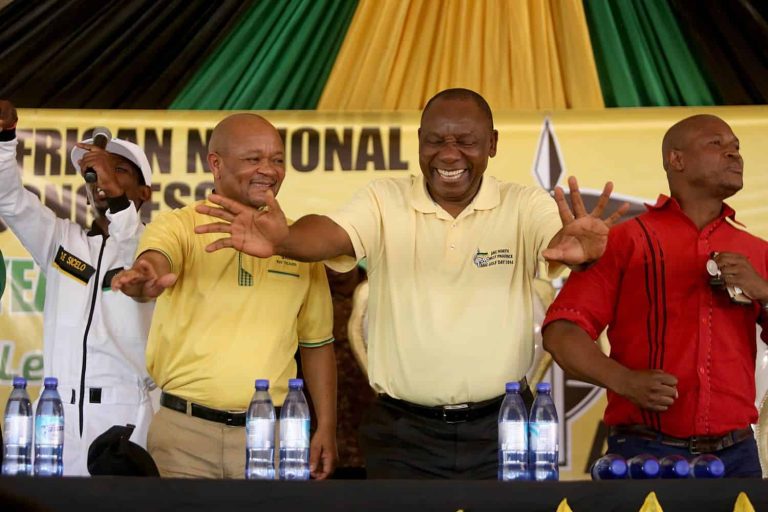
The longest government shutdown in U.S. history edged toward a breakthrough on Monday after eight Democratic senators crossed party lines to help Republicans pass a compromise funding measure in a 60–40 vote — a move that immediately ignited anger within their own ranks.
The shutdown, which began on October 1, has left more than one million federal workers without pay and caused escalating disruptions to public services.
In recent days, the crisis has hit air travel particularly hard, with over 1,000 flight cancellations each day, intensifying political pressure for a resolution.
“We’ll be opening up our country very quickly,” President Donald Trump said from the Oval Office, praising the agreement as “a very good deal.”
Senate Republican Leader John Thune also welcomed the vote, posting on X that the bill offers “a clear path to ending this unnecessary shutdown in a responsible way that quickly pays federal workers and reopens the federal government.”
Among the Democrats who supported the Republican plan was Senator John Fetterman, who defended his vote in a late-night post: “Feed everyone. Pay our military, government workers, and Capitol Police. End the chaos in airports. Country over party.”
With the stopgap funding bill clearing the Senate, attention now shifts to the Republican-controlled House of Representatives, which is expected to reconvene as early as Wednesday after a national holiday.
House Speaker Mike Johnson signaled optimism: “It appears this morning that our long national nightmare is finally coming to an end.” He added that at least some Democrats now seem ready to “do what Republicans and President Trump and millions of hardworking American people have been asking for weeks.”
Johnson, who had kept the House out of session throughout the standoff, said he will recall lawmakers for a vote this week.
Health Care Standoff at the Core
The battle in the Senate was largely fueled by Democrats’ insistence on extending federal health insurance subsidies set to expire at year’s end — benefits that prevent premiums from doubling for millions enrolled in the Affordable Care Act (“Obamacare”). Republicans demanded that any negotiations occur only after the government reopened.
Sunday’s breakthrough agreement would temporarily reopen the government through January, fully fund several essential programs for the entire fiscal year, and undo some of the Trump administration’s controversial federal employee dismissals.
Crucially, the bill restores full funding for SNAP, the food aid program supporting over 42 million low-income Americans. But although Republican leaders have agreed to hold a future vote on health care, there is no guarantee the subsidies will ultimately be extended.
“After 40 days of uncertainty, I’m profoundly glad that nutrition programs, our veterans, and other critical priorities will have full-year funding,” Thune said.
Democrats Divided
Democratic Senator Jeanne Shaheen, one of the eight who backed the measure, called it a significant step toward safeguarding health care for tens of millions of Americans.
She stressed that the deal grants Democrats — despite being in the minority — the ability to force a vote on health care legislation later.
But the move has angered progressive leaders and state officials who favored maintaining pressure until the subsidies were secured.
“Pathetic,” California Governor Gavin Newsom wrote on X, blasting the agreement.
Senate Majority Leader Chuck Schumer opposed the deal, saying he could not “in good faith” endorse a bill that “fails to address the health care crisis.” He vowed: “This fight will and must continue.”
Some within the Democratic caucus pointed fingers at Schumer for the lack of unity.
“Tonight is another example of why we need new leadership,” said Massachusetts Representative Seth Moulton.



